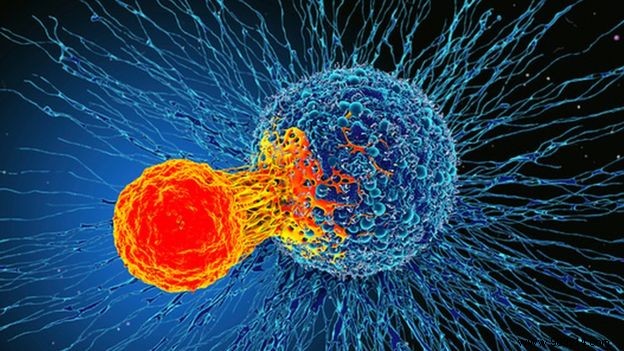According to a study, cancer cells are able to enter a dormant state to avoid destruction by chemotherapy. This could explain why some people respond poorly to these treatments, but also why some cancers seem to "come back" suddenly after several years.
Cancers have different recurrence rates. We also know that many of them can suddenly reappear and cause a relapse after a few years. This is the reason why doctors prefer to speak of "remission" rather than "cure" . We talk about remission when we no longer detect any cancerous cells in the body during medical examinations. It is only after a certain additional time, which varies according to the type of cancer, that we speak of recovery.
Researchers have been trying for years to understand how certain cancer cells can "stay hidden" for years before reappearing.
Previous research has found that different types of cancer cells potentially use a variety of methods from hiding in fatty tissue to reaching a new balance with the immune system . A new study published in the journal Cell today reveals another well-known strategy in the animal kingdom.
This preclinical study was conducted on human colorectal cancer cells. In the lab, researchers found that conventional chemotherapy treatment seemed to drive cells into a slowly dividing state . The gene expression of cancer cells in this state notably closely resembled that of mouse embryos entering a hibernation-like state called "embryonic diapause".
Usually triggered by adverse environmental conditions, this process causes an organism to essentially halt the development of an embryo until conditions become more favorable for survival . Here, cancer cells would have roughly developed this same ability to enter dormant states to avoid destruction by chemotherapy.
"The tumor acts like an entire organism capable of entering a slowly dividing state, conserving energy to help it survive “, says Catherine O’Brien, lead author of the new study. “There are examples of animals operating in similar ways to withstand harsh environments “.

A key feature of embryonic diapause is a cellular process called "autophagy ". As part of this work, the researchers discovered that cancer cells also rely on this same mechanism. When this ability was inhibited, the cancer cells were subsequently unable to enter a dormant state , before being finally destroyed thanks to chemotherapy.
Aaron Schimmer of the Princess Margaret Cancer Center notes that understanding this mechanism provides good insight into why some patients don't respond well to chemotherapy. “We never really knew that cancer cells were like hibernating bears “, he explains. "This study also tells us how to target these sleeping bears so they don't hibernate and wake up only to come back later unexpectedly “.